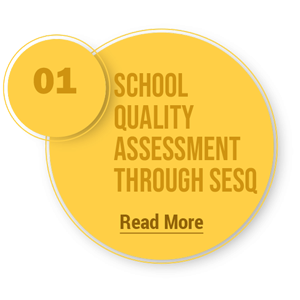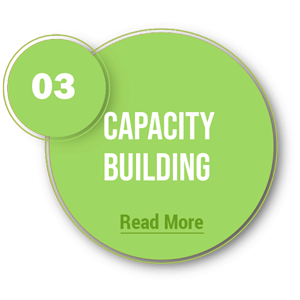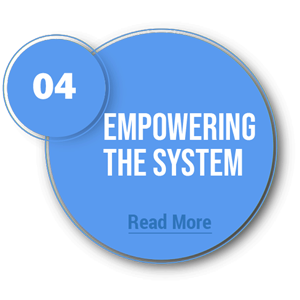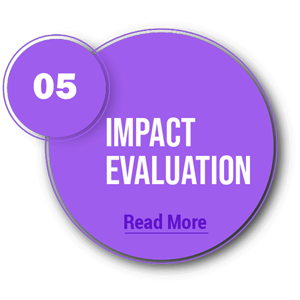WHOLE SCHOOL TRANSFORMATION PROGRAMME

The Whole School Transformation Programme (WSTP) was an extensively researched and systematic approach to improving the quality of School Processes in the areas of Teaching-Learning, Leadership, Governance and Administration.
SMF worked with school stakeholders for a period of three years first by diagnosing the existing quality of school practices and then by co-creating a systematic work plan to achieve the targeted level of excellence.

AIM
To transform schools into Centres of Excellence for holistic development of children.
OBJECTIVES
![]()
To empower teachers with the most effective practices in teaching and learning and a commitment to self development.
![]()
To foster proactive and democratic leadership for effective school ma- nagement through the participation of every stakeholder.
![]()
To develop effective systems and processes for continuous monitoring and evaluation of school quality.
KEY FEATURES
The WSTP was essentially a developmental and sustainable programme that:
THE SCHOOL TRANSFORMATION PROCESS
Whole School Transformation Programme was conducted by following these steps:
TESTIMONIALS
COVERAGE
OUR OFFERINGS
SMF was committed to supporting schools in achieving quality education, and therefore, the WSTP programme was customised to meet the specific needs of schools. It was offered in one of three modalities. The partner school indicated its potential level of engagement with SMF, based on which an appropriate modality was chosen.
1] SESQ Assessment and Accreditation
This modality involved a comprehensive analysis of the existing school practices using the SESQ programme and the schools received accreditation accordingly.
2] Modular Format
This modality involved a comprehensive analysis of the existing school practices using the SESQ programme and post getting an accreditation the school requested specific workshops by SMF to build the capacity in the selected areas of growth.
3] Intensive/3-year Format
This modality involved a comprehensive analysis of the existing school practices using the SESQ programme and post getting an accreditation SMF and partner schools collaboratively worked on an action plan for the areas of development for the school implemented over a period of 3 years.





